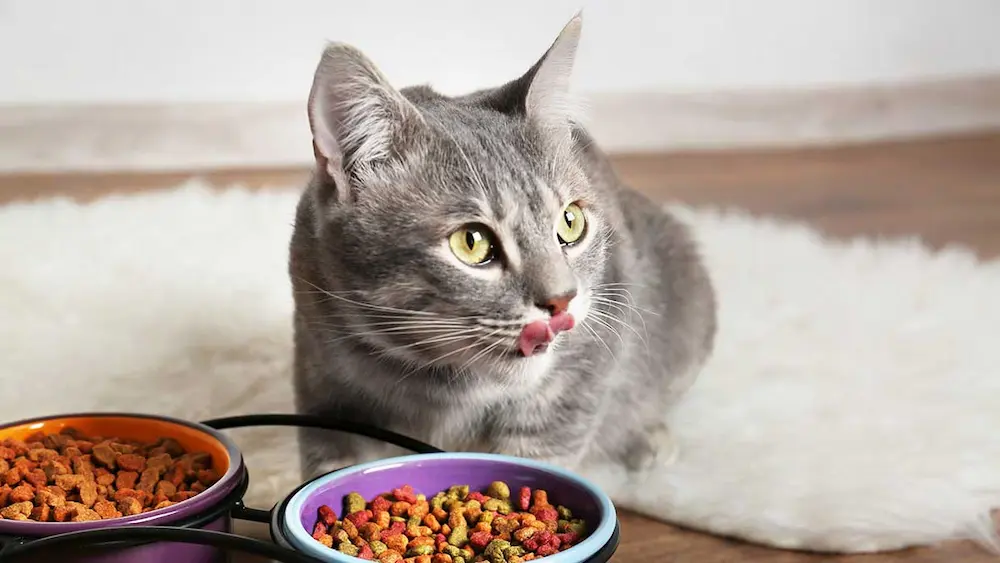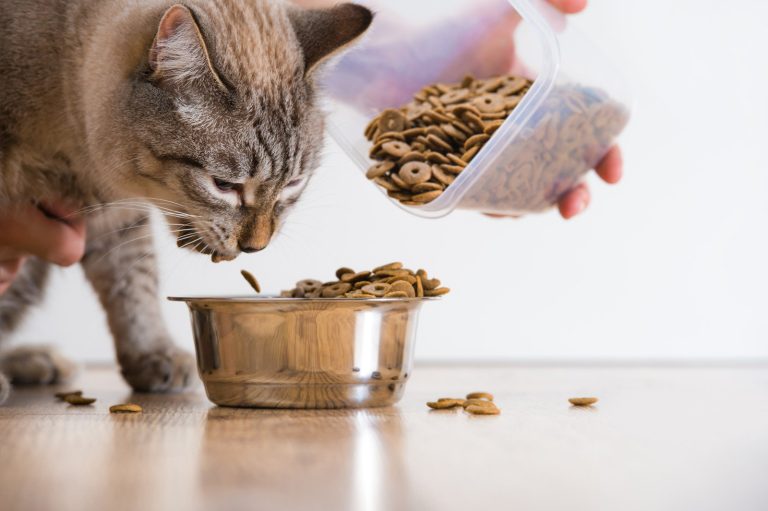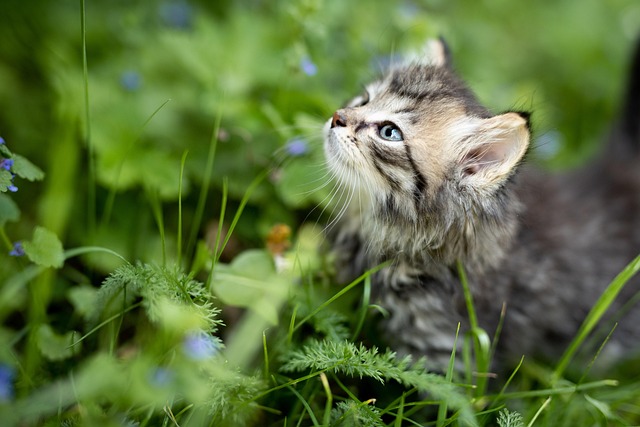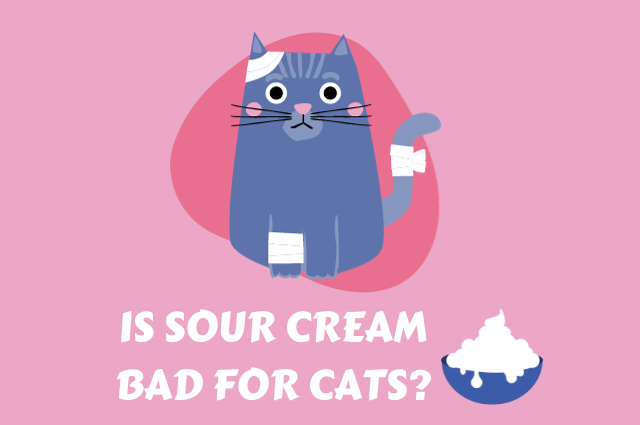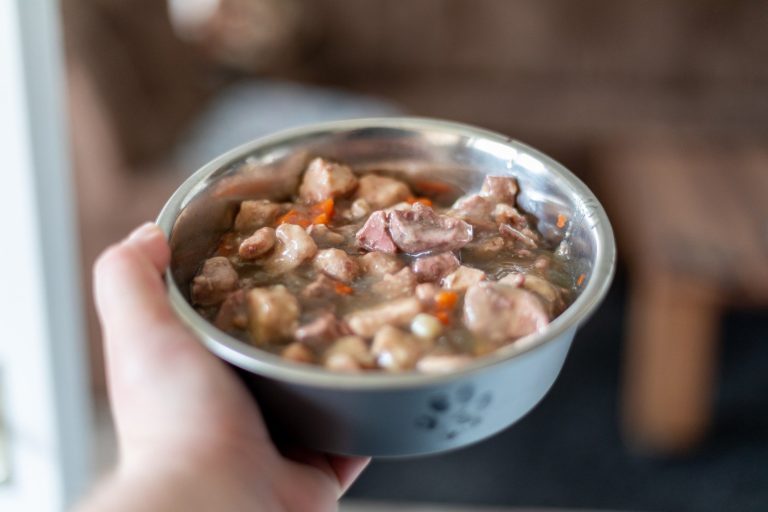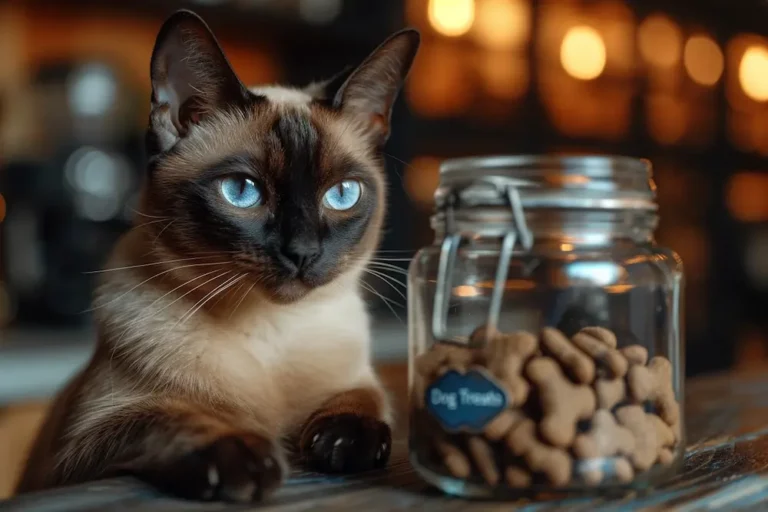Is My Cat Obsessed With Food? Tackling Overeating & Promoting Healthy Habits
Ever find yourself tripping over your feline every time you step into the kitchen?
If your
Many
But what’s behind this insatiable hunger?
Domestic cats often disrupt their natural eating rhythm, leading to some cats gorging themselves in one sitting—a habit that can lead to significant health issues.
This article will guide you to understanding and managing your
Signs Your Cat Is Food-Obsessed
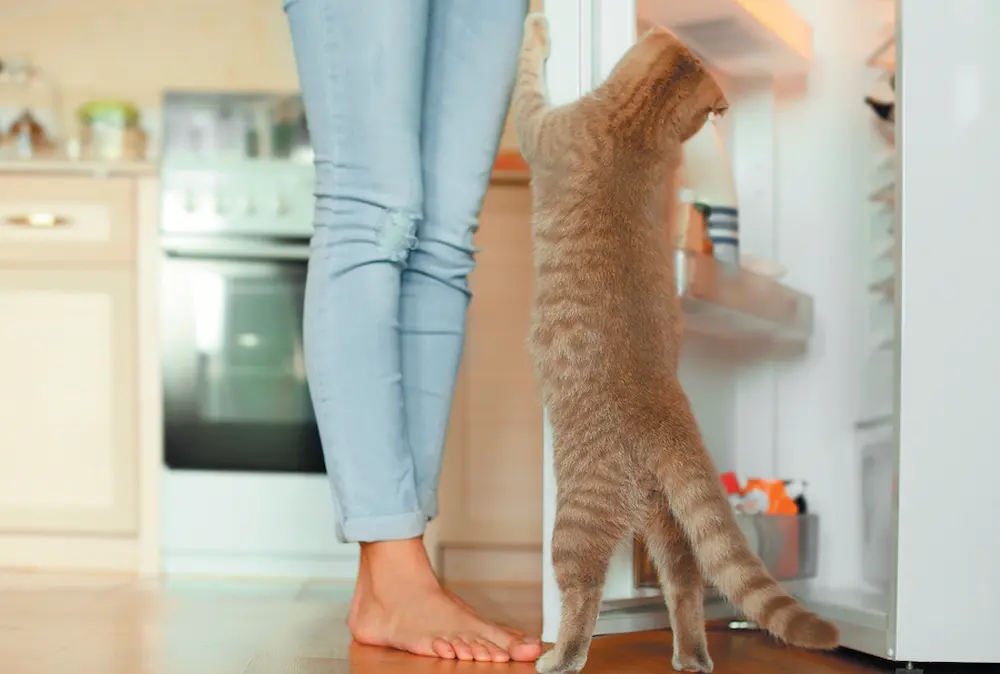
Identifying if your
Here, I’ll dissect the telltale signs that could indicate your
- Persistent meowing or vocalization at the sight or smell of food: Imagine this scenario: every time you step into the kitchen, there’s your
cat , vocalizing loudly as if to say, “Feed me now!” This behavior is not just them being vocal; it’s a sign they’re overly fixated on food. - Aggressiveness around food: This can manifest when they’re eating, when you’re preparing food, or if other pets are around during meal times. You might notice your
cat hissing, swatting, or displaying possessiveness over their food bowl or even over areas where food is prepared or consumed. This aggressiveness can stem from their need to compete for food in their past, especially for cats who might have had to fight for food to survive in their kittenhood. - Frequent stealing or scavenging for food, even after they’ve eaten: If your
cat is sneaking onto countertops to search for crumbs, or expertly opening cabinets to find their treats, it’s not just cute mischief—it’s a sign of food obsession. - Overreaction to the sound of food packaging or the food dispenser: In some cats, this triggers a Pavlovian response. The feline may dash across the house the moment they hear the crinkle of a treat bag or the clatter of kibble hitting the bowl, showing an intense and immediate focus on food.
- Constant begging: whether they’re pawing at you during your meals, incessantly following you to their food bowl, or employing those big, pleading eyes, indicates an unhealthy fixation. This behavior can disrupt daily routines and create a demanding atmosphere at meal times.
Why Is Your Cat Obsessed With Food? Possible Reasons & Solutions
Understanding why your
Once identified, there are multiple effective solutions to manage and, hopefully, curb this behavior.
Here’s a breakdown of the primary culprits and practical solutions.
Malnutrition
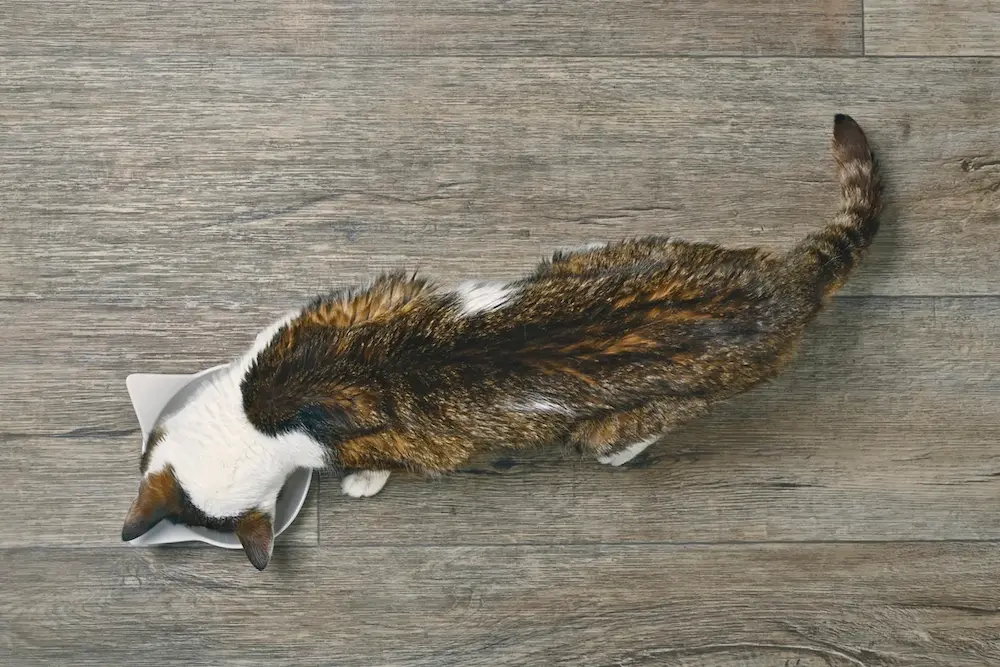
Believe it or not, your
It sounds counterintuitive, especially if you’re feeding them regularly.
But, not all
Some may lack essential nutrients your
Solution:
Opt for high-quality, nutrient-rich
Adult cats have different nutritional needs compared to kitties or senior cats, so be sure to consult with your vet to choose the best option.
Also, incorporating wet food can provide hydration and is often more satisfying.
Medical Conditions
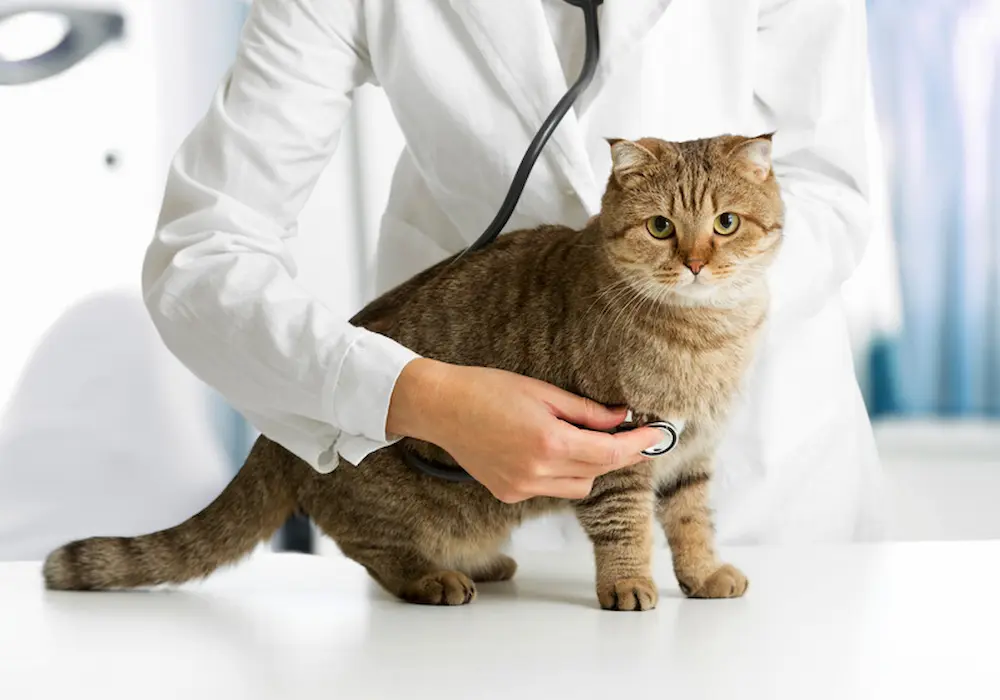
There are several medical issues that can lead to an increased appetite, including:
- Hyperthyroidism: Cats suffering from this condition eat more because their metabolism works faster due to the thyroid gland producing too much of this hormone.
- Diabetes mellitus: When cats have diabetes, their bodies are either unable to produce insulin or can’t properly use the insulin the body produces. In such cases, the feline’s body may feel extremely hungry, although your
cat intakes sufficient food throughout the day. - Intestinal parasites: Tapeworms and rainworms represent some of the intestinal parasites that can attack your
cat ‘s body. They consume the host’s digested food, leading to your feline not getting enough nutrients and becoming overly hungry. - Malabsorptive diseases: Some diseases, such as exocrine pancreatic insufficiency and inflammatory bowel disease don’t allow a
cat ‘s body to absorb nutrients ingested through food. These health issues can lead to constant hunger in cats, while some may start consuming non-food items.
These conditions alter your
Solution:
A vet visit is paramount if you suspect your
Prompt diagnosis and treatment can mitigate these medical conditions and bring your
Instincts
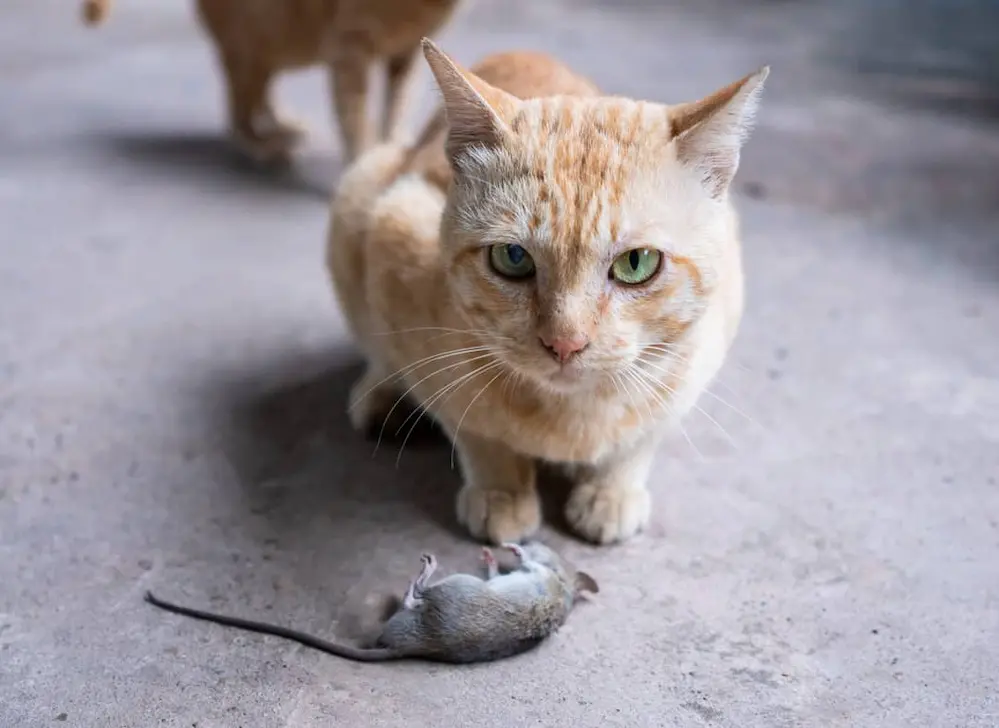
Cats, by nature, are hunters.
In the wild, they would typically eat multiple small meals a day, primarily consisting of protein.
Domestication hasn’t fully erased these instincts, and some cats might display an insatiable appetite simply because their natural feeding pattern isn’t being mimicked at home.
Solution:
Try feeding your
This approach can help satisfy their instinctual urges.
Also, employing feeding toys or puzzles that simulate hunting can make mealtime both challenging and rewarding for your
Stress & Anxiety
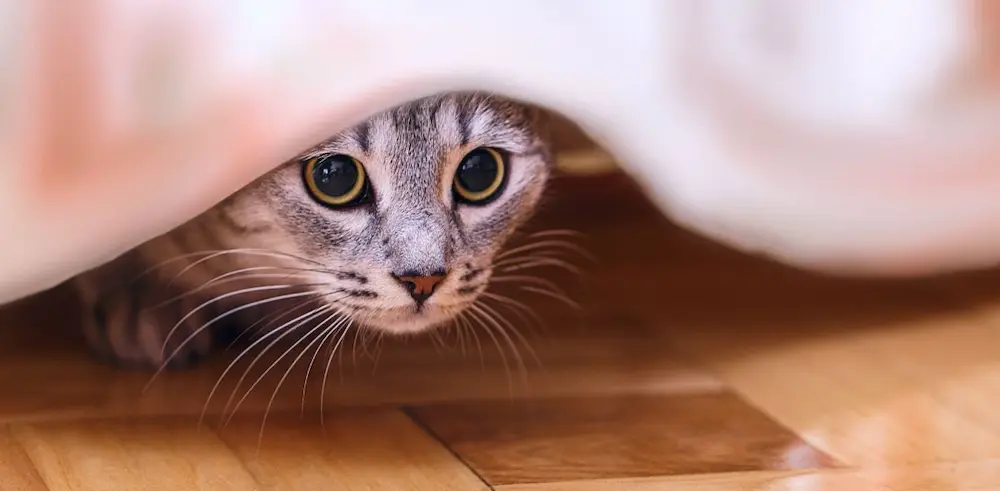
Just like humans, cats can turn to food for comfort when feeling stressed or anxious.
Changes in the household, a new pet, or even certain scents can trigger anxiety in your feline, leading them to find solace in eating.
Solution:
Identify and eliminate the stressor if possible.
Create a safe, quiet space where your
Consider using pheromone diffusers, which can help soothe your
Engaging in regular, interactive play can also alleviate stress and redirect their focus away from food.
Intaking Specific Medications
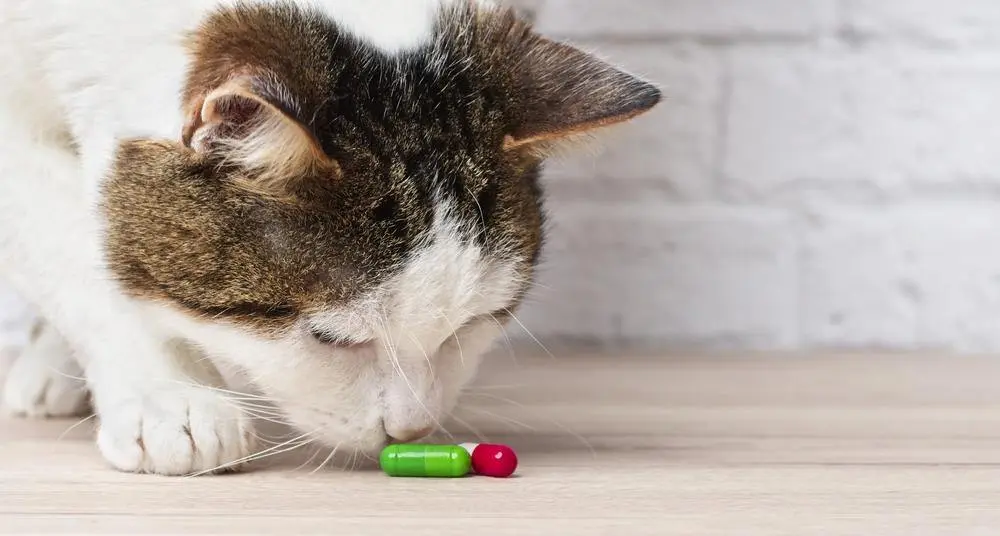
Sometimes, the cause behind your
Medicines, especially those involving steroids or hormonal therapies, can significantly amplify your
These medications can cause an increase in appetite as a side effect, leading your
For example, if your
The steroids often used to treat these conditions can make your
Solution:
The first step is to have a chat with your veterinarian.
I can’t stress enough how important it’s to communicate any changes in your
Your vet might adjust the dosage or suggest an alternative medication that doesn’t affect their appetite as much.
Sometimes, a simple adjustment can make a big difference in managing your
General Tips For Helping Cats Obsessed With Food Eat Less
In addressing cats’ obsession with food, it’s crucial to carry out strategies that cater to their health and behavioral needs.
Drawing from my experience and detailed research, I’ve come up with practical tips that can significantly help:
- Consider interactive feeding toys: By forcing your
cat to work for each piece of kibble, they engage more physically and mentally, making mealtime more stimulating. This method allows you to follow how much you’re feeding your cat and slow down their eating pace while satisfying their predatory instincts. - Break down meals into several smaller portions throughout the day: Cats, by nature, are inclined to eat small meals frequently, mimicking their wild ancestors’ eating patterns. This approach keeps their metabolism steady and their interest in constant food-seeking at bay.
- Implement a high-fiber diet: The food your
cat intakes makes a significant difference. High-fiber foods make cats feel fuller longer, discouraging overeating. Think of it as replacing fast food with more filling, healthier options that satisfy hunger better and for longer periods. - Establish a fixed mealtime schedule: Strict mealtime helps regulate your
cat ‘s body clock to expect food only at certain times of the day, reducing constant begging or food obsession. It’s akin to training yourcat to understand that mealtime is a set event, not an all-day buffet.
These strategies can help you foster a healthier relationship between cats and their eating habits, ensuring a happy, healthier life.
FAQ- Frequently Asked Questions
Can Overeating Be A Sign Of Pregnancy In Cats?
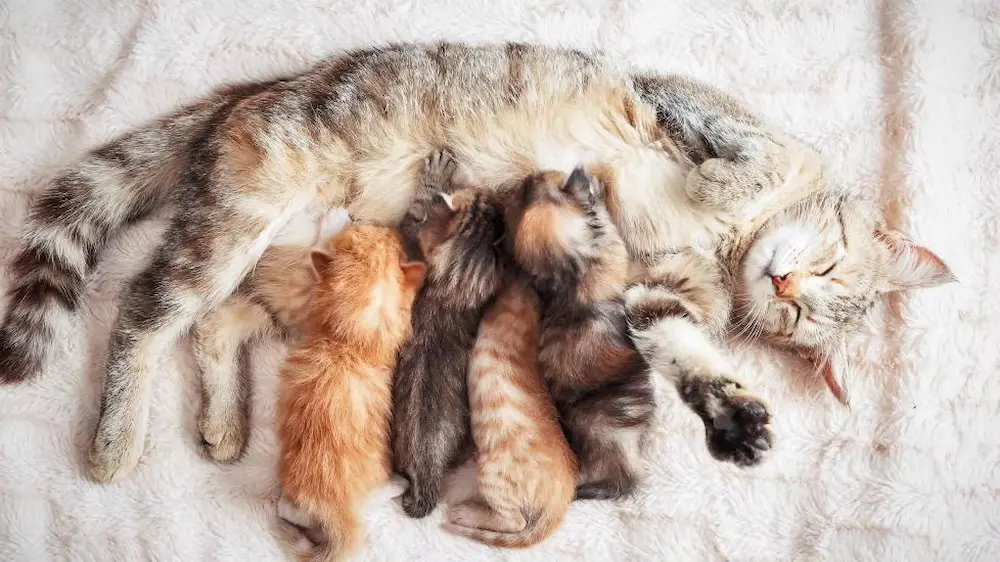
When my clients express concern about their
It’s crucial to recognize that pregnancy can indeed trigger overeating in felines.
As a veterinary professional, I’ve observed firsthand the changes in dietary habits among expecting cats.
They’re not just eating for one – they’re eating for several, which understandably ups their food intake.
During your cat’s gestation period, you might notice that her appetite gradually increases as she progresses through the stages of pregnancy.
Behavior changes might also occur; a pregnant
If you suspect your
An accurate diagnosis can ensure your feline receives the right nutrition and care during her pregnancy.
Does My Cat Have An Eating Disorder?
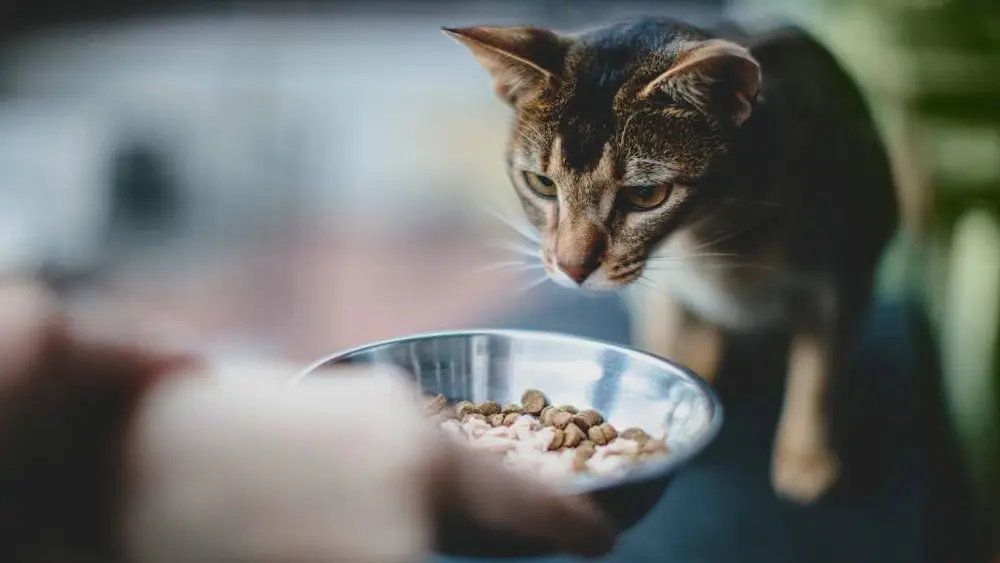
In the world of pet parenting, understanding your
It’s important to decipher whether your feline’s food obsession is a quirky trait or a sign of an eating disorder.
To achieve this, I’ll jump into what constitutes an eating disorder in cats, identifying symptoms, and offering practical advice on how to manage this situation.
Cats, much like humans, can exhibit signs of eating disorders.
These can range from overeating (polyphagia) to outright refusal to eat (anorexia).
The question arises, “How do I differentiate between a
It’s important to pay close attention to sudden changes in eating habits.
A healthy
If your
What Should I Do If My Cat Is Overweight?
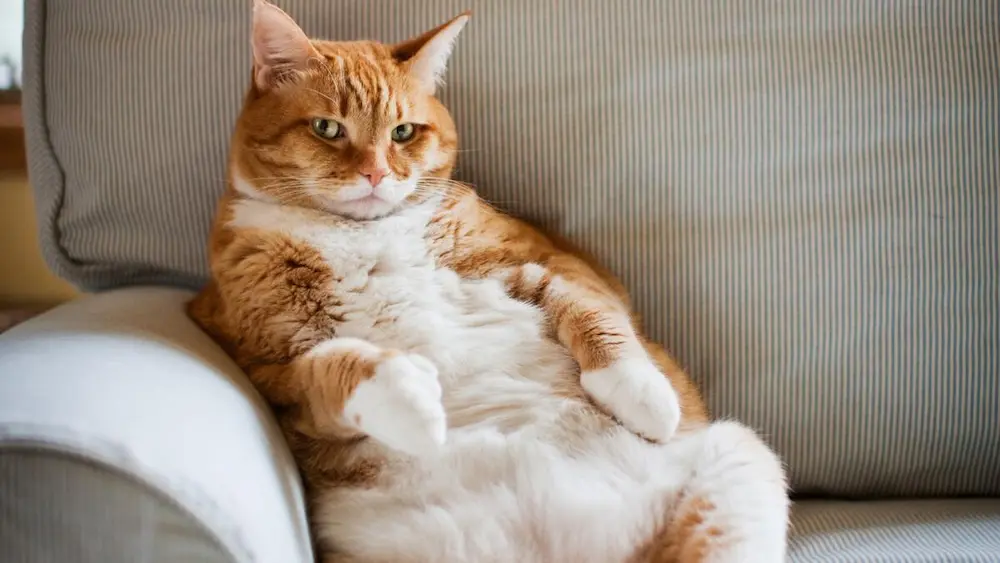
If you’ve noticed your
Obesity can cause a range of health problems in your feline, including a damaged immune system, cardiovascular diseases, and arthritis.
Therefore, adjusting your
Understanding the root cause, whether it’s medical, pregnancy-related, or behavioral, can guide you in providing the best care and ensure your
Is Food Obsession A Serious Problem For Cats?
Understanding your
I’ve shared insights on why some cats develop an obsession with food and how you can help manage it.
Remember, sudden changes in appetite could signal health issues, so it’s vital to stay vigilant and consult your vet when necessary.
Adopting strategies like simulating natural feeding patterns and choosing nutrient-rich diets, can help your feline lead a healthier life.
It’s all about creating a balance that supports their physical health and satisfies their instinctual behaviors.
